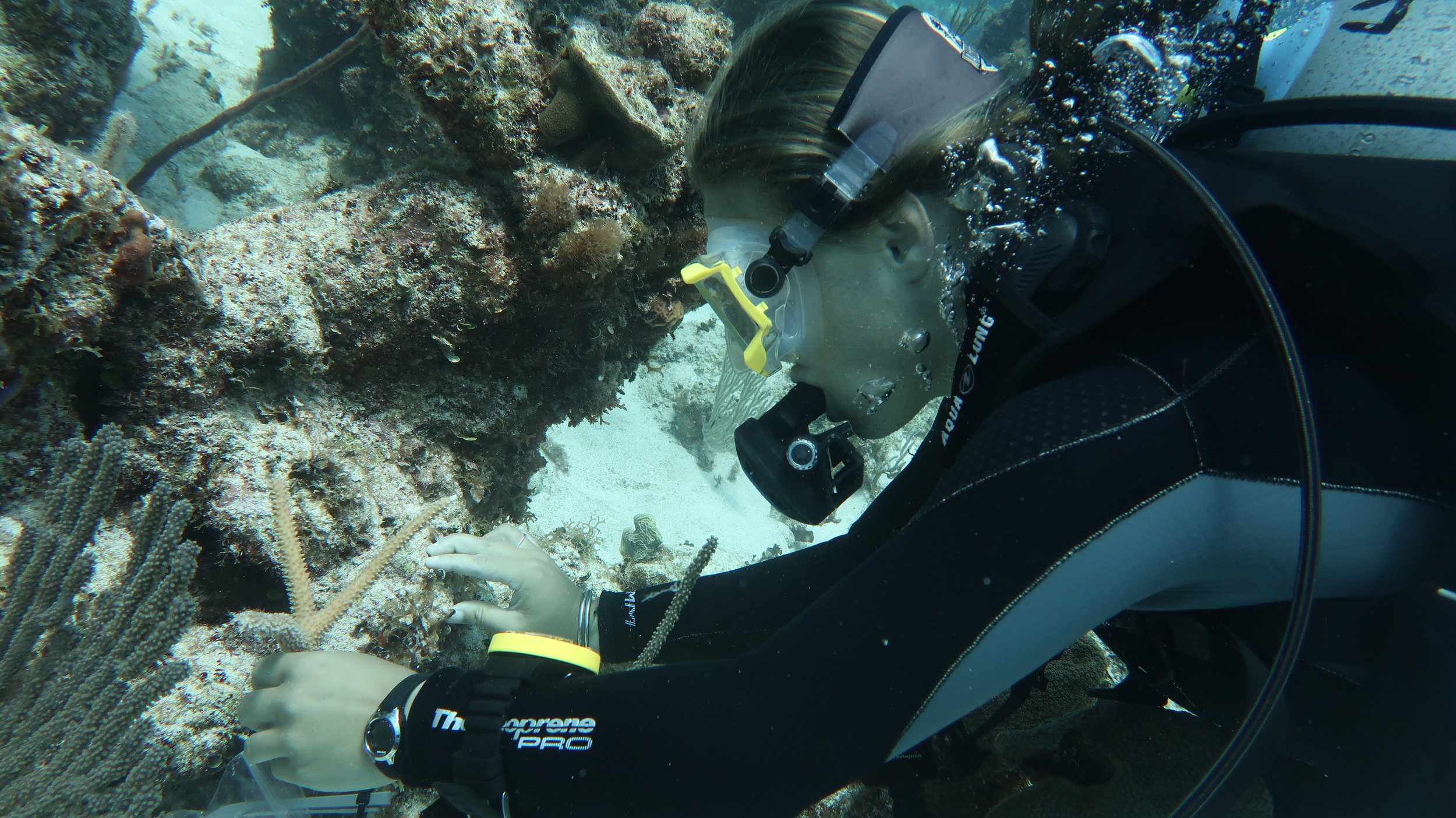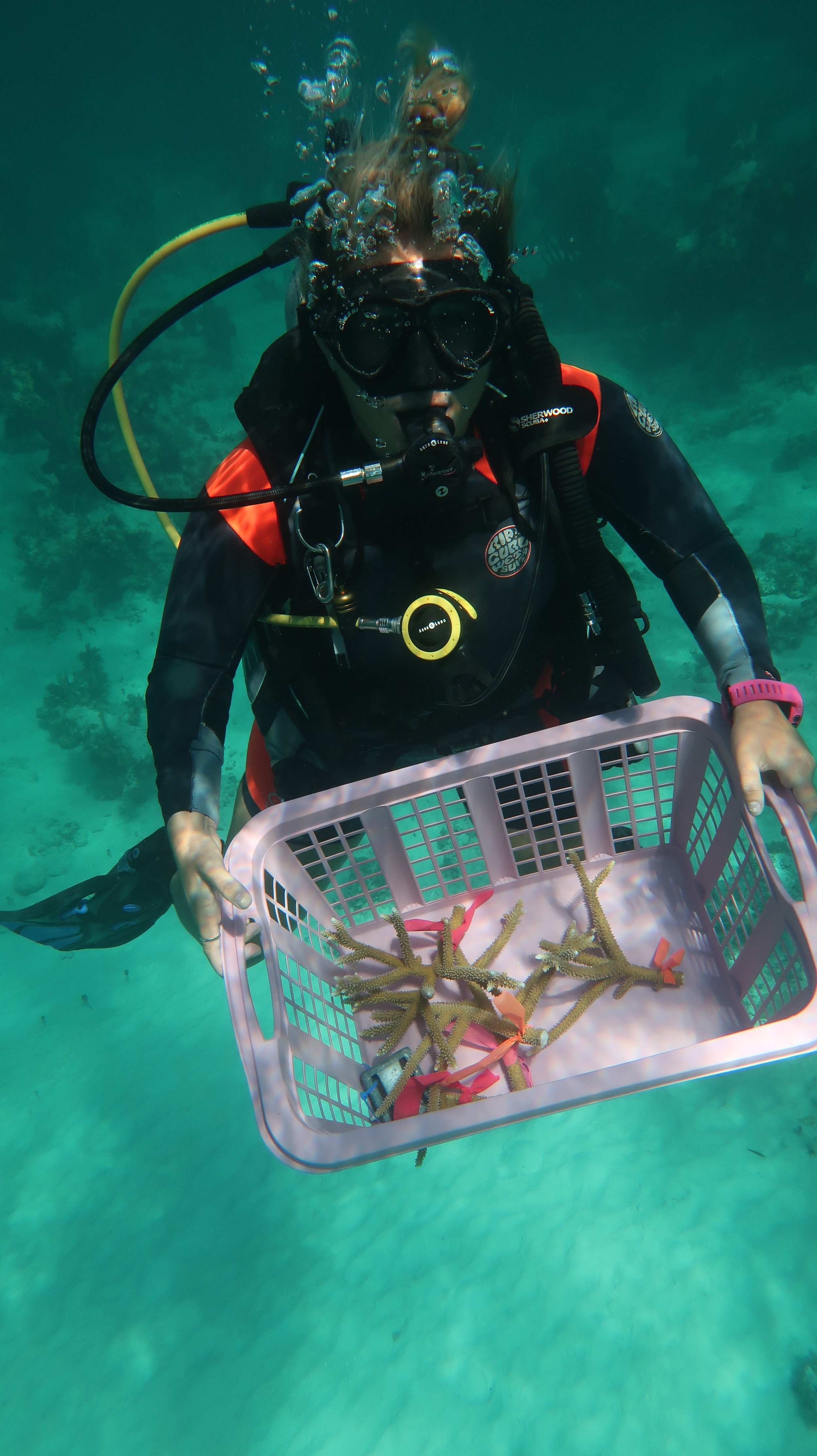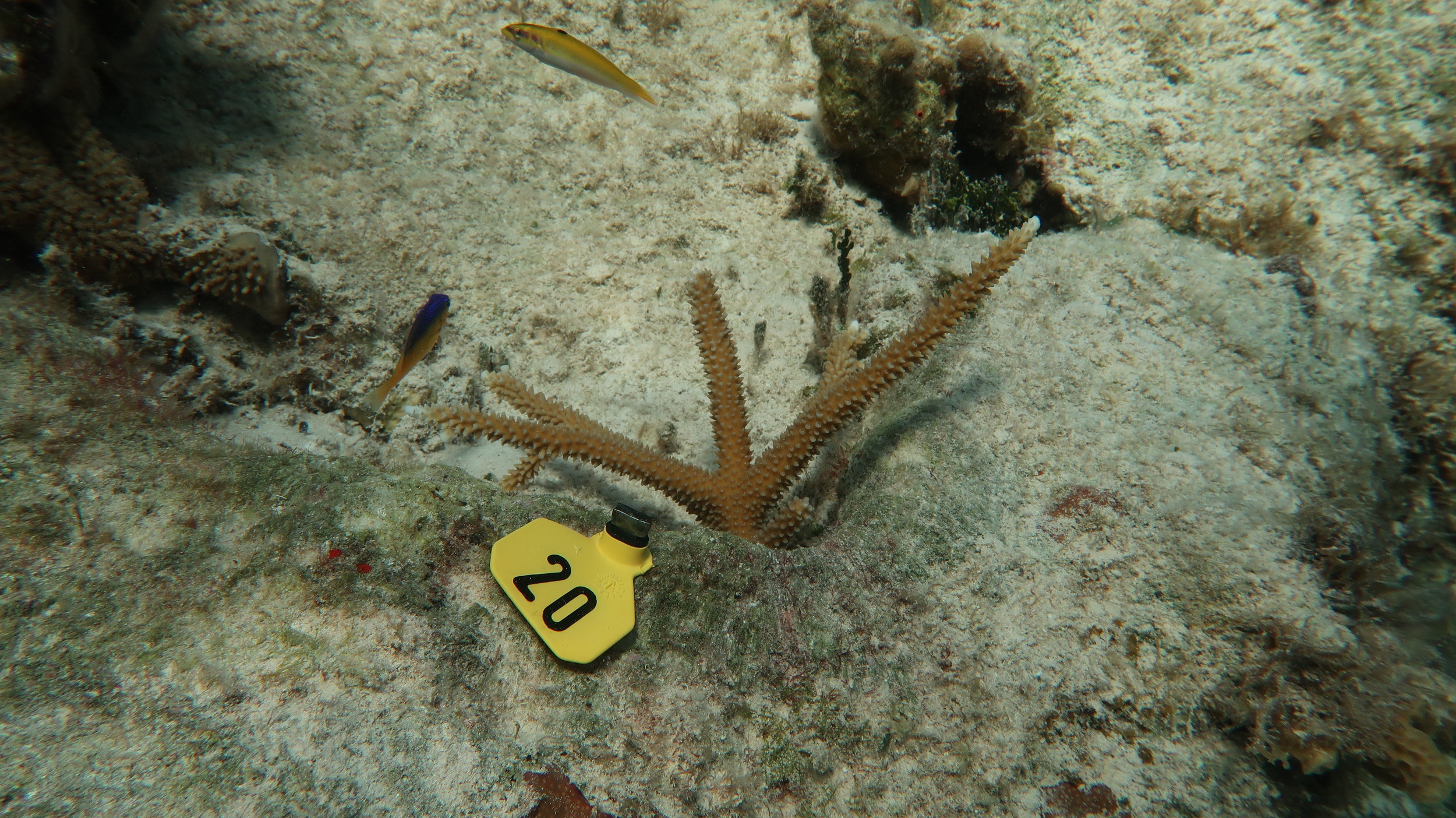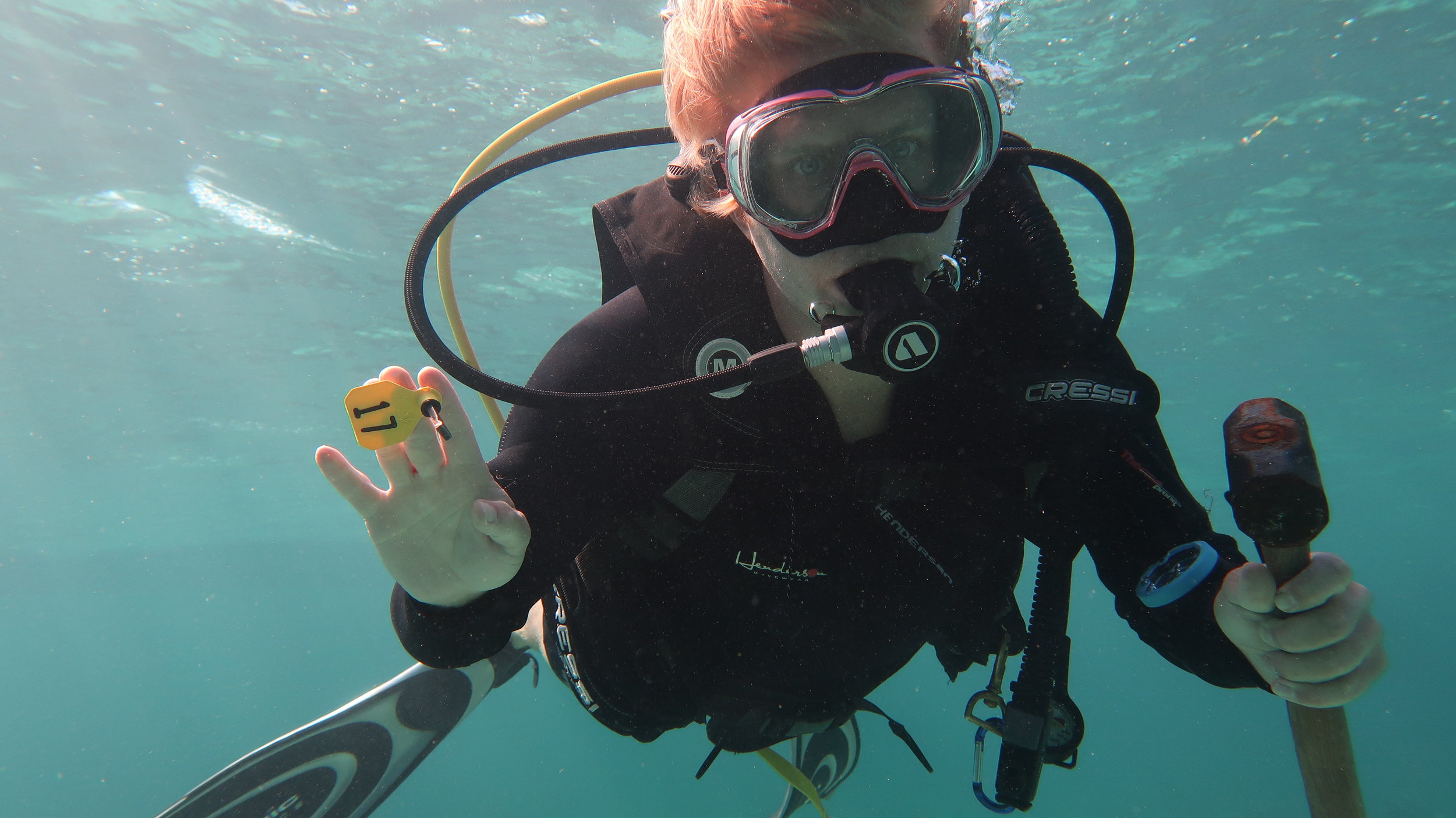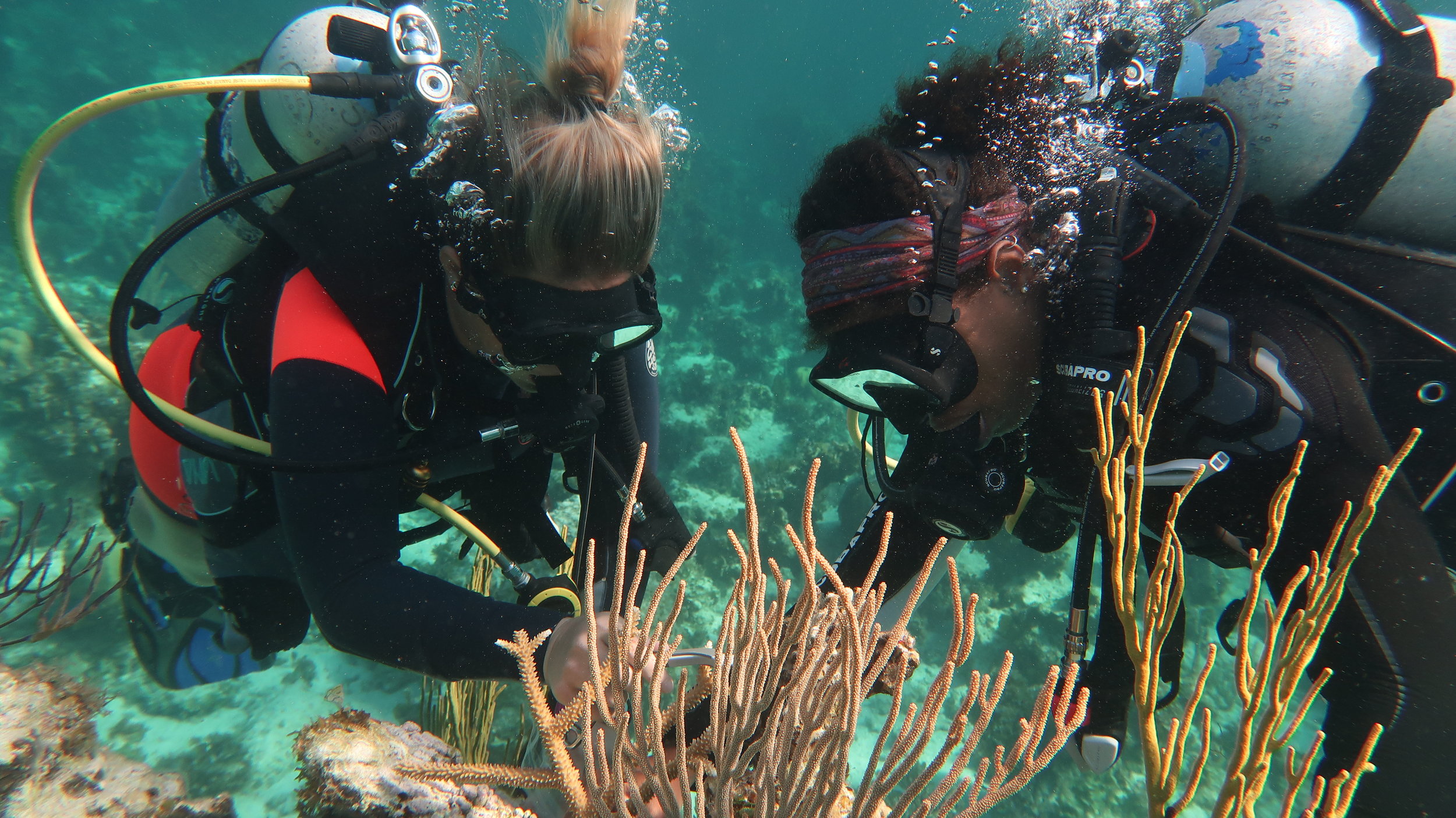Coral Propagation at Forfar Field Station: Update, May 2018
/Our Propagation Site
The coral line nursery (as shown above) is growing 80 to 90 fragments of Staghorn (Acropora cervicornis), Elkhorn (Acropora palmata), and Fused Staghorn (Acropora prolifera) species. These species of coral provide incredibly important habitats within reefs. Unfortunately, these fast-growing coral species face many challenges in warming waters. They are particularly susceptible to bleaching events and higher concentrations of carbon dioxide which can impair coral fertilization. To learn more about coral restoration efforts and coral propagation, check out Dr. David Vaughan's research at the Mote Tropical Research Center here.
In collaboration with the Reef Rescue Network, we are excited to monitor the progress and growth of these outplanted corals! We are thrilled about the positive results from the coral propagation and restoration efforts so far in the Bahamas. These ongoing projects give us hope for the future of coral reefs, and IFS will continue to restore, support and protect these precious ecosystems.
What is coral outplanting?
Corals are grown in a nursery for about six to nine months on average. When they are deemed ready for outplanting, they are taken to predetermined restoration sites and are directly attached to the reef with a non-toxic marine epoxy or with nails and zip ties (check out this video to see the nail and zip tie method in action). Corals can then be monitored for potential threats including disease, tissue paling, and predation. Broken fragments of coral can be reattached to the reef and grow into new coral colonies that promote genetic diversity. These broken coral fragments would likely not be able to reattach themselves to the reef or survive on their own without our help.
We are passionate about sharing the latest research and updates on the health of global coral reefs and marine conservation. Follow us on Facebook or Instagram to stay see the latest news!
The Future of Coral Propagation
We are amazed by the large scale efforts for the preservation and restoration of coral reefs being implemented today by our friends at SECORE. Coral restoration can be tedious, as each coral fragment must be manually transplanted onto the reef. However, SECORE is implementing pilot projects that utilize quicker methods for restoration in Mexico and Curacao. SECORE Seeding Units allow for rapid seeding of coral fragments (also called coral recruits). Intensive research has gone into the asexual reproduction of coral species, and the best way to propagate coral recruits with genetic diversity, while emphasizing the ability for coral species to better withstand the changing oceanic conditions that can easily stress and kill reefs.
SECORE highlights some of the greatest challenges facing the Bahamian coral reefs. Because of the shallow waters surrounding the Bahamas, the reefs are subjected to increasing water temperatures which can lead to algal growth, elevated nutrient levels and the potential for reoccurring coral bleaching (SECORE, Bahamas). Continued research aims to find the most resilient corals in a changing environment. We can't wait to follow along with their findings, projects and developing research for the health and survival of future reefs.



